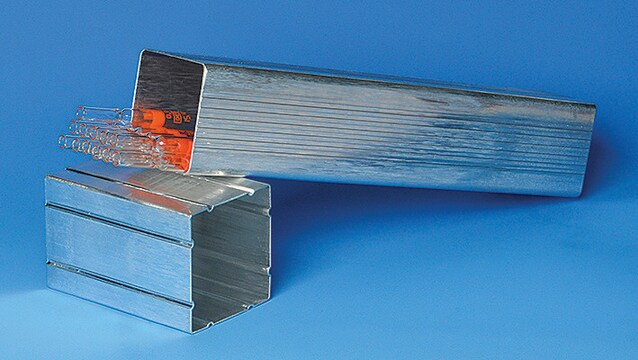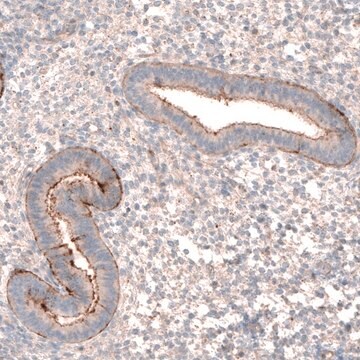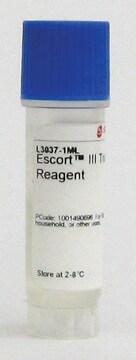ZRB2020
Anti-Profilin-1 Antibody, clone 1H21 ZooMAb® Rabbit Monoclonal

recombinant, expressed in HEK 293 cells
Sinónimos:
Epididymis tissue protein Li 184a, Profilin I
About This Item
Productos recomendados
origen biológico
rabbit
Nivel de calidad
recombinante
expressed in HEK 293 cells
conjugado
unconjugated
forma del anticuerpo
purified antibody
tipo de anticuerpo
primary antibodies
clon
recombinant monoclonal
descripción
clone 1H21
recombinant, expressed in HEK 293 cells
Línea del producto
ZooMAb® learn more
Formulario
lyophilized
mol peso
calculated mol wt 15 kDa
observed mol wt ~13 kDa
purificado por
using Protein A
reactividad de especies
human, rat, mouse, monkey
envase
antibody small pack of 25
características de los productos alternativos más sostenibles
Waste Prevention
Designing Safer Chemicals
Design for Energy Efficiency
Learn more about the Principles of Green Chemistry.
validación mejorada
recombinant expression
Learn more about Antibody Enhanced Validation
sustainability
Greener Alternative Product
técnicas
affinity binding assay: suitable
immunocytochemistry: suitable
immunohistochemistry: suitable
western blot: suitable
isotipo
IgG
secuencia del epítopo
C-terminal
Nº de acceso Protein ID
Nº de acceso UniProt
categoría alternativa más sostenible
Condiciones de envío
ambient
temp. de almacenamiento
2-8°C
Información sobre el gen
human ... PFN1(5216)
Descripción general
Especificidad
Inmunógeno
Aplicación
Evaluated by Western Blotting in COS-7 cell lysate.
Western Blotting Analysis: A 1:10,000 dilution of this antibody detected Profilin-1 in COS-7 cell lysate.
Tested Applications
Western Blotting Analysis: A 1:10,000 dilution from a representative lot detected Profilin-1 in lysates from HeLa, C2C12, and PC12 cells.
Immunohistochemistry (Paraffin) Analysis: A 1:1,000 dilution from a representative lot detected Profilin-1 in Human tonsil tissue sections.
Immunocytochemistry Analysis: A 1:100 dilution from a representative lot detected Profilin-1 in HeLa cells .
Affinity Binding Assay: A representative lot of this antibody bound Profilin-1 peptide with a KD of 9.5 x 10-6 in an affinity binding assay.
Note: Actual optimal working dilutions must be determined by end user as specimens, and experimental conditions may vary with the end user.
Descripción de destino
Forma física
Almacenamiento y estabilidad
Información legal
Cláusula de descargo de responsabilidad
¿No encuentra el producto adecuado?
Pruebe nuestro Herramienta de selección de productos.
Código de clase de almacenamiento
11 - Combustible Solids
Clase de riesgo para el agua (WGK)
WGK 1
Punto de inflamabilidad (°F)
Not applicable
Punto de inflamabilidad (°C)
Not applicable
Elija entre una de las versiones más recientes:
Certificados de análisis (COA)
It looks like we've run into a problem, but you can still download Certificates of Analysis from our Documentos section.
Si necesita más asistencia, póngase en contacto con Atención al cliente
¿Ya tiene este producto?
Encuentre la documentación para los productos que ha comprado recientemente en la Biblioteca de documentos.
Nuestro equipo de científicos tiene experiencia en todas las áreas de investigación: Ciencias de la vida, Ciencia de los materiales, Síntesis química, Cromatografía, Analítica y muchas otras.
Póngase en contacto con el Servicio técnico








